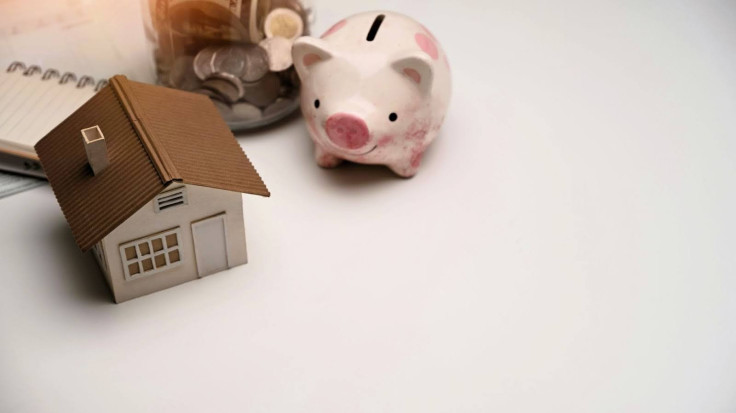Philip Garland: The Hidden Costs First-Time Homebuyers Never Expect

Buying a home for the first time is an exciting milestone, but it comes with more layers than many expect. While most new buyers prepare for the obvious, like saving for a down payment or securing a mortgage, they often overlook the less visible but equally important costs. From hidden fees at the closing table to the ongoing expenses of homeownership, it's easy to underestimate how quickly small charges add up.
Philip Garland stresses that understanding the full landscape of expenses—from one-time costs, such as inspections and moving, to recurring obligations like taxes, utilities, and maintenance—can help buyers avoid financial strain. Planning ahead, setting aside buffers, and asking the right questions along the way make all the difference in ensuring that a dream home doesn't become an unexpected burden.
What First-Time Buyers Often Miss
Many first-time homebuyers focus heavily on saving for a down payment and finding the best mortgage rate, assuming those are the biggest financial hurdles. While those are important, they're only part of the full cost of homeownership. Once an offer is accepted, a range of additional expenses can quickly surface.
Unexpected costs can impact everything from loan approval to move-in day. A buyer might budget carefully for monthly mortgage payments but forget about the upfront fees or the extra monthly obligations that come with owning. These overlooked costs add up and, without planning, stretch a new homeowner's finances.
Fees at the Closing Table
Closing on a home is more than signing paperwork—it often comes with a surprising number of one-time fees that add up quickly. Loan origination charges, title searches, and appraisal fees can cost thousands, typically ranging from two to five percent of the home's price. These are due before move-in and not rolled into the mortgage, which can catch buyers off guard if they haven't budgeted properly.
Home inspections are another cost that shouldn't be overlooked. Even newer properties can hide issues like faulty wiring or plumbing problems. If a serious problem is uncovered, buyers may need to pay for additional inspections or negotiate repairs, all before they even get the keys. In some markets, pest inspections and radon testing are also recommended, which can further increase pre-move costs.
Property Expenses
Property taxes vary between neighborhoods, cities, and school districts, and they often increase over time. A first-time buyer might see a low monthly mortgage payment, only to find that a higher-than-expected tax bill pushes their monthly housing cost above their comfort zone. In some cases, buyers also face escrow shortages, forcing them to cover unexpected gaps in their mortgage impound account. Lenders may then adjust future payments to make up for the shortfall.
Insurance is another cost that's easy to underestimate. Standard homeowners insurance is required by lenders, but it doesn't cover everything. Some homes, especially those in flood-prone zones or earthquake regions, may require additional coverage. These extra policies can raise the overall monthly expense and are sometimes non-negotiable if required by the lender. It's wise to shop around for competitive rates, but coverage gaps shouldn't be sacrificed for lower premiums.
Monthly and Annual Living Costs
Transitioning from renting to owning often brings surprise expenses that aren't always obvious at first glance. Utilities may need to be set up from scratch and can vary widely depending on the size and age of the home. Older homes, in particular, might have inefficient systems that drive up monthly electric or heating bills. Seasonal changes can also cause fluctuations in utility usage, impacting monthly budgeting.
Neighborhood-specific fees, such as HOA dues or community maintenance charges, can quickly add to the overall cost of living. These payments may cover shared amenities or landscaping, but they also come with rules homeowners must follow. Missing a payment or violating a guideline could result in penalties, making it important to factor these fees into the budget early on.
Upkeep and Repairs
Owning a home means becoming responsible for every leaky faucet, flickering light, and cracked sidewalk. Routine maintenance like servicing the furnace, clearing gutters, or mowing the lawn may not seem like much individually, but over time, they become a regular drain on time and money. Skipping these small tasks can lead to bigger, costlier issues down the road.
Even with a newly purchased home, unexpected repairs are almost inevitable. A roof might begin to leak during the first stormy season, or an aging water heater could fail without warning. Many experts suggest earmarking one to three percent of the home's value annually for upkeep.
Moving and Settling In
Getting into a new home doesn't stop at the front door. Moving costs can vary wildly depending on distance, volume, and whether professional movers are involved. Some buyers underestimate how expensive it is to transport everything they own, especially if they need to rent storage or stay in a hotel during the transition. Additional charges like fuel, packing supplies, or elevator fees in apartments can also sneak in.
Once inside, buyers often realize how many essentials are missing. Window treatments, appliances, and furniture that were never needed in a rental suddenly become priorities. Even small purchases like tools, cleaning supplies, or internet setup fees start to pile up. These early purchases, while often overlooked, can take a noticeable bite out of the budget in the first few weeks. Creating a move-in checklist can help prioritize immediate needs and spread out spending.
© Copyright IBTimes 2025. All rights reserved.





















